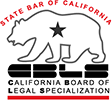Navigating the complexities of family law in California can be challenging, especially when it comes to understanding what information remains private and what becomes part of the public record. The Huntington Beach family law attorneys at the Law Offices of Lisa R. McCall can help you answer the question, “Are family law cases confidential in California?”
Whether you’re dealing with divorce, child custody, or support issues, questions about how much of your personal life could be exposed in court can be a source of concern. From financial records to personal details about your children, understanding these distinctions is crucial for anyone looking to safeguard their privacy while navigating the legal system.
Types of Family Law Information That Is Confidential in California
In California, while many aspects of family law cases are public records, certain types of information are deemed confidential to protect the privacy and safety of the individuals involved. Understanding which parts of your case are shielded from public access can provide peace of mind as you navigate the legal system. Here are some key types of confidential information in family law cases:
- Personal Identifiers: Social Security numbers are redacted from publicly accessible documents to prevent identity theft. Bank accounts, credit card numbers, and other financial details are kept confidential to protect against fraud.
- Children’s Information: Information about minors, including their names, addresses, and living situations, is typically kept confidential to ensure their safety and privacy. Reports and recommendations from child custody evaluations are generally sealed and not available to the public.
- Medical and Psychological Records: Any medical or psychological records submitted in a family law case, whether they pertain to adults or children, are confidential. This includes therapy notes, diagnoses, and treatment plans. If substance abuse treatment records are involved in the case, these are also kept confidential under state and federal privacy laws.
- Domestic Violence and Protective Orders: If the case involves allegations of domestic violence, abuse, or harassment, details about these claims are often sealed to protect the individuals involved. The addresses and contact information of individuals who have obtained protective orders are typically kept confidential to prevent further harm.
- Financial Information: While some financial information is necessary for the court’s decision-making, detailed income statements, tax returns, and asset disclosures can be sealed to protect privacy. The specific financial data used to calculate support payments may be confidential, especially if it involves sensitive business information.
- Attorney-Client Communications: Any communication between a client and their attorney is protected by attorney-client privilege and is confidential unless the client chooses to waive this privilege.
- Adoption Records: In cases involving adoption, all records are sealed and can only be accessed by the parties involved or through a court order.
- Sensitive Law Enforcement Records: If law enforcement is involved in any aspect of a family law case, such as in situations of child endangerment, those records may be kept confidential.
- Settlement Agreements: If the parties in a family law case reach a settlement, they can request that the terms be kept confidential, particularly if they involve sensitive financial or personal matters.
Understanding the types of family law case information that are confidential in California is crucial for protecting your privacy and the well-being of your loved ones during legal proceedings. From personal identifiers and sensitive financial details to information about your children and medical records, the law provides important safeguards to ensure that certain aspects of your case remain private.
FAQs
Q: Are Family Law Cases Public Records in California?
A: Yes, family law cases are generally public records in California. This means that most documents filed in a family law case, such as divorce proceedings, child custody cases, and support orders, can be accessed by the public. However, there are exceptions where certain information may be kept confidential or sealed, especially in cases involving sensitive information, such as the identity of minors, allegations of abuse, and more.
Q: What Is Confidential Information in California?
A: Confidential information in California can include personal identifiers such as Social Security numbers, financial account numbers, driver’s license numbers, medical records, juvenile records, abuse and protective orders, certain family law records, attorney-client communications, protected health information, and more.
In certain cases, individuals can request that the court seal specific records or limit public access to them if the information is particularly sensitive or poses a risk to privacy or safety.
Q: Are Divorce Records Confidential in California?
A: Divorce records are generally considered public records in California. However, certain information within those records may be kept confidential or sealed, especially if it involves sensitive or private details. If privacy is a significant concern, it may be advisable to request that certain documents or portions of the record be sealed by the court.
Q: Can You Look Up Child Support Cases in California?
A: Yes, you can typically look up child support cases in California, as they are generally public records. However, access to specific details, particularly sensitive information, may be restricted or confidential. There are exceptions to this, such as if the court has sealed parts of the record due to privacy concerns, the records may not be accessible to the public. You can generally access this information through court websites, in-person requests, and confidentiality requests.
Contact a Local Huntington Beach Family Law Attorney Today
While many aspects of family law cases in California are part of the public record, the state provides protections for sensitive information to ensure the privacy and safety of those involved. Understanding what details are confidential and how to navigate the complexities of public access can be overwhelming, especially during emotionally charged legal proceedings. This is where the guidance of an experienced family law attorney becomes invaluable.
A knowledgeable family law lawyer can help you understand what parts of your case are public and what can be kept private, advocating for your privacy at every step. They can assist in filing motions to seal sensitive documents, protecting your personal information, and ensuring that your and your family’s interests are safeguarded. Contact the Law Offices of Lisa R. McCall and set up an initial consultation today to navigate your family law matter with confidence.









